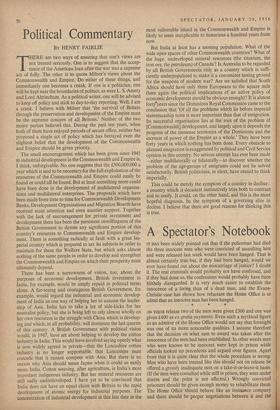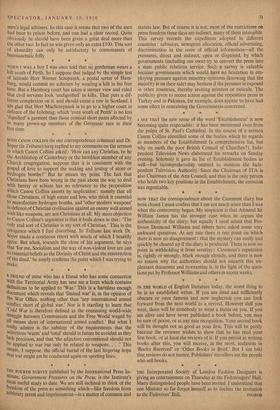ON THEIR release two of the men were given £300
and one was given £400 as ex gratia payments. Even such a mythical figure as an admirer of the Home Office would not say that foresight was one of its more noticeable qualities. I assume therefore that the decision on what sum to award was taken after the innocence of the men had been established. In other words men who were known to be innocent were kept in prison while officials looked up precedents and argued over figures. Apart from that it is quite clear that the whole procedure is wrong. Men who have been treated like this should not on release be offered a grossly inadequate sum on a take-it-or-leave-it basis. (If the men were consulted while still in prison, they were under duress and the point is not affected.) Wrongly convicted prisoners should be given enough money to rehabilitate them. The Home Office should behave like an insurance company and there should be proper negotiations between it and the men's legal advisers. In this case it seems that two of the men had been to prison before, and one had a clear record. Quite obviously he should have been given a great deal more than the other two. In fact he was given only an extra £100. This sort of absurdity can only be satisfactory to connoisseurs of buereaucratic folly.



































 Previous page
Previous page